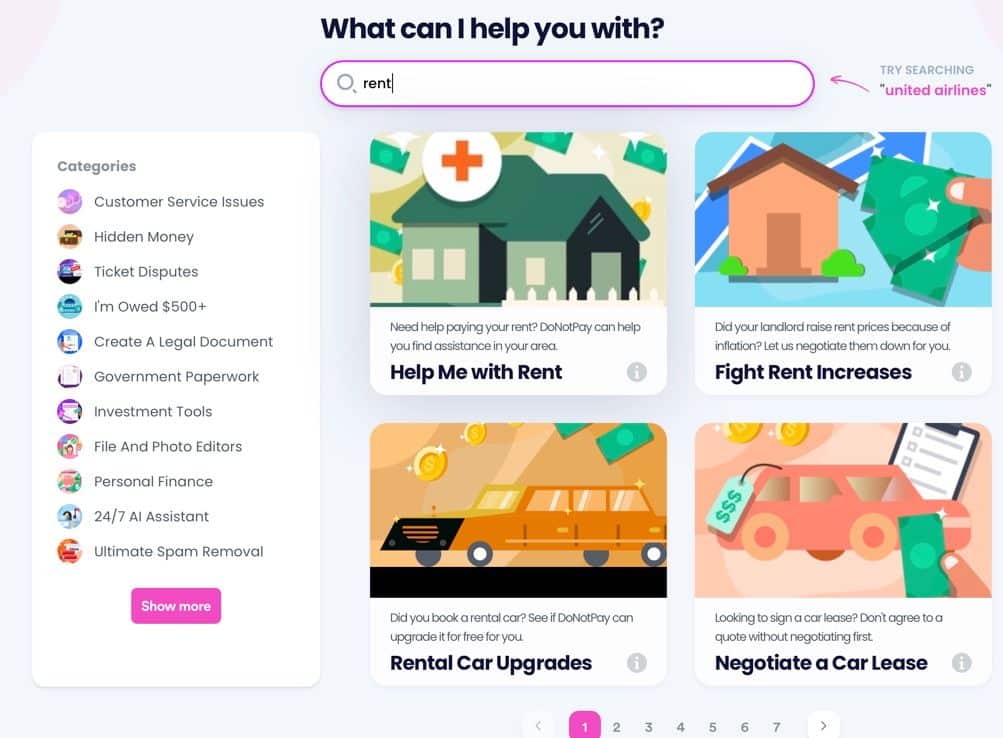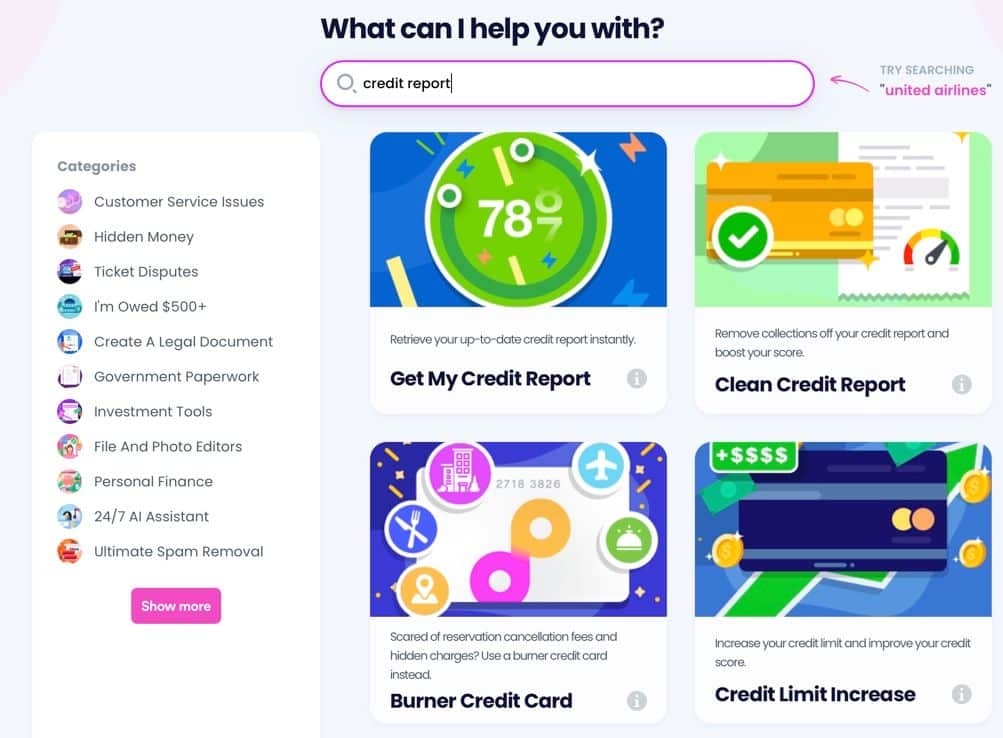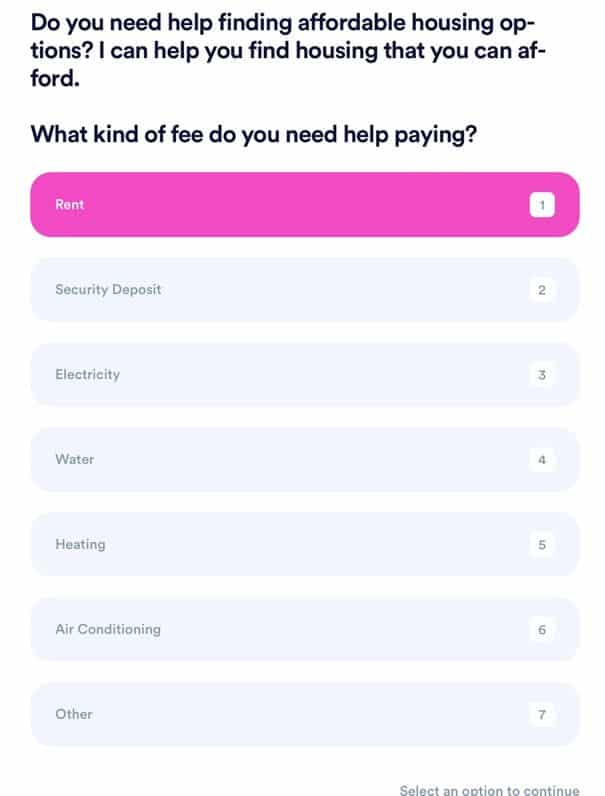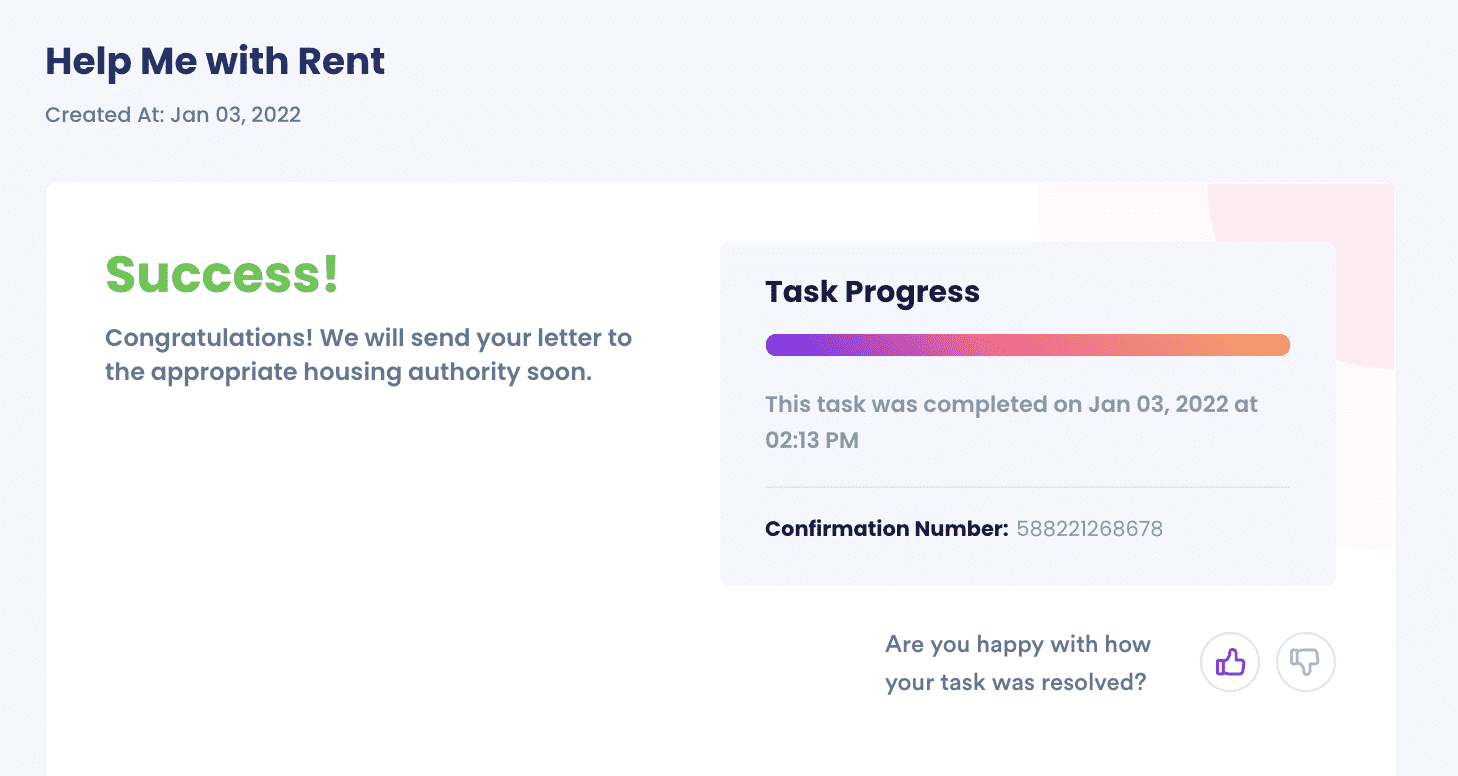How to Get Government Assistance For Rent
If you're currently facing eviction or are homeless with multiple barriers to housing, getting can make all the difference. There are numerous programs that low-income consumers can take advantage of. You can get help paying your past due rent, your late fees, or some or all of your move-in costs. You can even find a government-subsidized rental housing assistance program that will give you access to affordable living costs over the long term.
Funding for rental assistance is limited. Moreover, the demand for this aid is always high. Most grants and other monies are distributed on a first-come, first-served basis. Many funding opportunities are also reserved for serving specific demographics. The good news is that finding and applying for rent assistance is always easy when you use DoNotPay. With the Rental Assistance product from DoNotPay, you can quickly submit your appeal for rent help to multiple agencies.
How Do I Apply for Government Assistance for Rent?
Whether you want HUD rental assistance in the form of a Section 8 voucher or you need help paying rent today and want to qualify for the Emergency Rent Assistance Program (ERAP), you'll need to start this process by reaching out to the agency or organization that's currently managing and distributing the related funds. To determine which agencies to contact, you'll have to decide which resources for rental assistance are best for your circumstances and goals. You can choose from
- Move-in cost assistance
- Assistance with late rent and late fees (Eviction prevention rental assistance)
- Rental assistance that offers access to long-term affordable housing options
Move-in cost assistance is usually offered by local rapid rehousing programs that are managed by the Department of Social and Health Services (DSHS). DSHS offices also provide referrals to outside agencies that help with eviction prevention. However, if you're facing a long-term struggle with paying your rent on time, you should reach out to the Housing Authority in your city or county. The Housing Authority manages:
- Low-cost public housing units
- The Housing Choice Voucher Program (Section 8)
- Below market rentals
- Affordable housing options
and more. Getting is made easier with DoNotPay.
Who's Eligible to Receive Government Assistance for Rent?
Government assistance for rent is offered on a needs basis. To qualify based on income, you will need to earn 80 percent of the median income for your area or less. However, several programs cater to people living on a fixed income or experiencing long-term financial hardships. If you are:
- Living with HIV and at-risk of homelessness
- A retired veteran with a long-term disability
- An aging adult who's living below the national poverty line
- A victim of domestic violence
- An at-risk youth/young adult
- Negatively affected by the COVID-19 pandemic
you may be qualified to receive support from one or more rental assistance programs that are managed at the state level. One of the best ways to find resources for rental assistance that is available in your area is by calling 2-1-1. 2-1-1 operators can tell you about government-subsidized funding opportunities. They can additionally tell you about local churches and charitable groups that also offer limited funding for eviction prevention and move-in assistance. If you've never received rent help before and want to learn more about how to get help with rent, speaking with 2-1-1 operators in your area is an excellent start.
The Importance of Having an Income When Applying for Government Rent Assistance
Although there are firm limits on how much income you can earn and still qualify for government rent assistance, having a regular source of income is equally important. Most agencies and programs want to know that applicants will be able to continue managing their rental costs going forward. For long-term assistance with housing costs via affordable housing programs and Section 8 vouchers, applicants' rent charges will be based upon a small percent of what they earn each month. Acceptable forms of income can come from regular, gainful employment, veteran's benefits, disability benefits, or unemployment.
Options in Rental Assistance by State
Each state has its programs and methods for approving and distributing its available rental assistance funds. Click the link for your state below to find agencies offering help paying rent for eviction prevention and agencies that help with move-in costs.
| Texas | California | New York |
| Florida | Arizona | Massachusetts |
| Illinois | North Carolina | Ohio |
| Georgia | Virginia | Washington State |
| Colorado | New Jersey | Pennsylvania |
| Maryland | Oregon | Michigan |
| Nevada | Indiana | Tennessee |
| Wisconsin | Missouri | Connecticut |
| South Carolina | Minnesota | Alabama |
| Washington DC | Kansas | Kentucky |
| Louisiana | New Mexico | Arkansas |
| Hawaii | Utah | West Virginia |
| Nebraska | Maine | North Dakota |
| South Dakota | Missouri | Oklahoma |
| Rhode Island | Iowa |
How Long Does It Take to Receive Rental Assistance?
Like many people who are currently facing eviction or who are desperate to be rehoused after eviction, you may be wondering how long it takes to receive rental assistance. Application approval times can vary greatly from agency to agency and program to program based upon several factors:
- The availability of funding
- The availability of staff that can process applications
- The level of demand for housing assistance
Making sure that your application is correct and complete, and that you've included all of the requested documents can help expedite your review and approval. In many cases, approval times span between just two to six weeks. Best of all, once you've applied for funding, the issuing agency can let your landlord know that you're actively taking steps to resolve your unpaid rent or to pay your required move-in costs.
How to Get Government Assistance for Rent on Your Own
The first step in finding programs to pay for rent is often called 2-1-1. In most states, 2-1-1 is the Community Resource Connections Center. Operators screen callers based on their income levels and needs. They then make referrals to the local agencies that can best help them. When you call 2-1-1, you may be able to get an in-person appointment scheduled with a nearby agency right away. You can also call:
- The Housing Authority
- Public Health
- Department of Social and Health Services
or even Veteran's Affairs if you've served time in the military. These agencies will let you know which rental assistance programs they manage and how to apply.
Next Steps for Getting Government Rent Assistance if You Can't Do It by Yourself
If you're having a hard time finding or qualifying for government rent assistance on your own, you can look for local rental or advocates that can help. You can also contact charitable organizations that have a national presence including:
- United Way
- The Salvation Army
- Goodwill
and others. However, the best way to find government rent assistance that you're qualified for is by using the Rental Assistance product from DoNotPay.
Use DoNotPay to Get Low Income Rent Assistance
How to Apply for Government Assistance for Rent With DoNotPay
We can compose a letter to your local housing authority based on your situation and inquire about your best options for receiving assistance. Here are the 4 steps:
- Search for Rental Assistance on DoNotPay.

- Put together a list of your income, debts, expenses, and assets. If you need help accessing information like your credit report, DoNotPay can help you get your report.

- Let DoNotPay collect your basic information and compose a letter to your local housing authority requesting rental assistance.

- Lastly, DoNotPay will send your letter to your local housing authority.

Why Use DoNotPay to Get Financial Help With Rent?
DoNotPay can expedite the application and approval process. You can also use DoNotPay to get in-depth info on local rent assistance programs and many other resources.
DoNotPay Works Across All Agencies, Companies, and Groups With a Single Click
With limited funding available and consistently high demand for eviction prevention, move-in assistance, and long-term affordable housing solutions, it's important to apply for as many rental assistance programs as you can. Fortunately, DoNotPay makes this a cinch. With DoNotPay, you can submit your appeal to multiple agencies and programs at once. DoNotPay works across all companies and groups with one click.
What Else Can DoNotPay Do?
DoNotPay can help you find the best options in in your area and your circumstances. However, you can also use DoNotPay to resolve many other challenging, frustrating, or stressful issues. With DoNotPay, you can quickly:
- Schedule an appointment at the DMV
- Find missing money that's registered in your name
- Reduce your property taxes
- Get help with other bills
and find and apply for free trials. Subscribe to DoNotPay now to get started!
 By
By